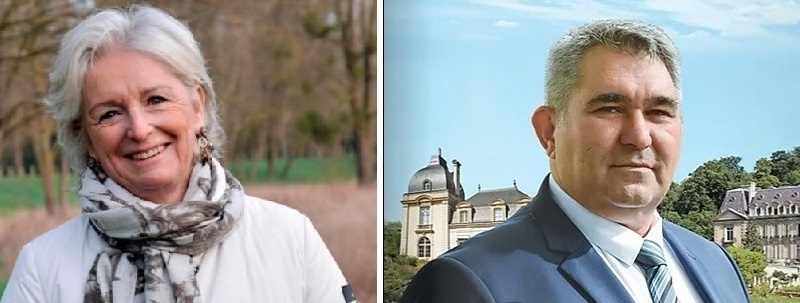Jouy-en-Josas Elections – MH Aubert’s meeting: what an evening!
The meeting organized by Marie-Hélène Aubert, on the 3rd of March, started slowly, in a good mood, with the presentation of her team. The candidate showed an impressive command of public communication: the welcoming group at the entrance, the smile during the first speech, the use of systematically positive words (except for the climate issue), even if it meant using many expressions that were a bit superlative as marvelous, extraordinary and exceptional. When each member of the Rassemblement pour Jouy (Rally for Jouy) municipal list spoke in a few words of his field of action, MHA took care to speak about her running mates using the future, not the conditional, and in a completely natural way, as the next team to who will take over the exiting one.
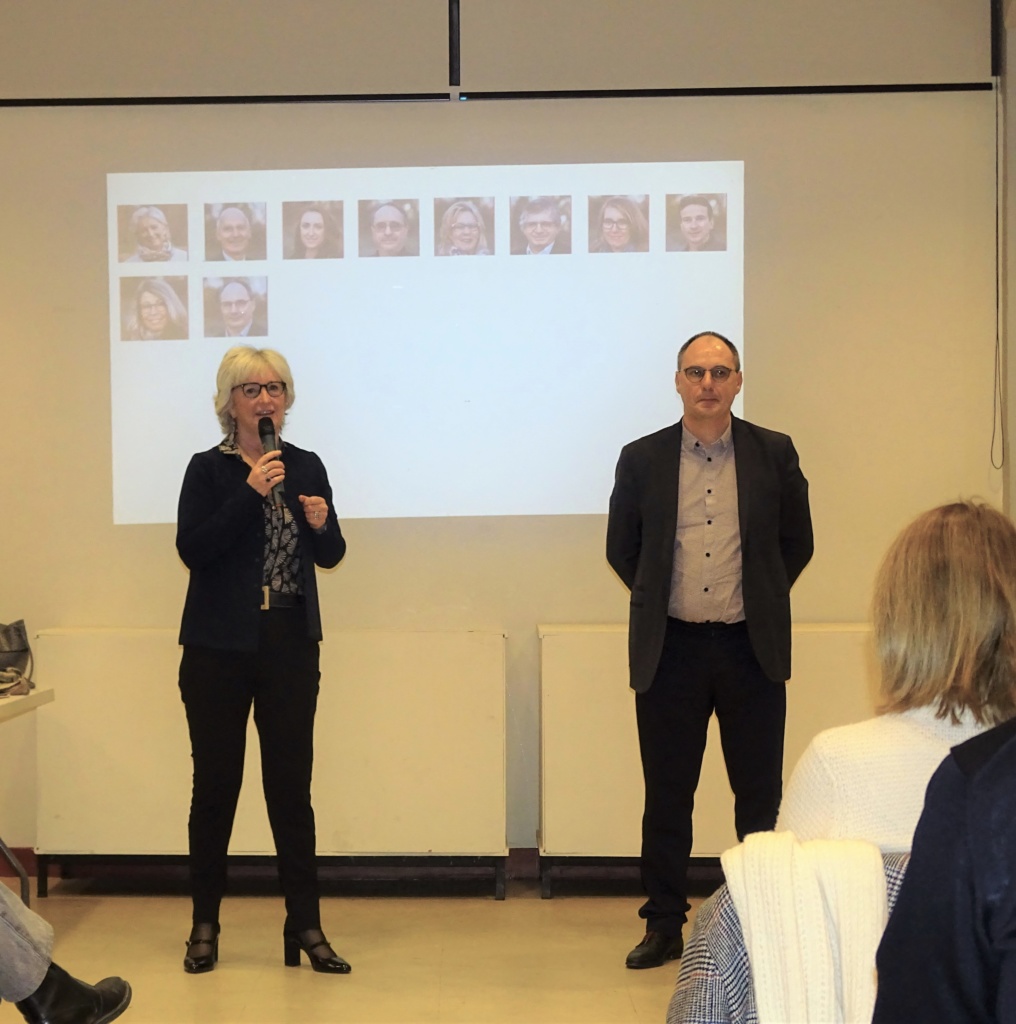
Impressive! Contrib.city can only raise its hat before such mastery: Madam President, you are a true professional! Even the request of MH Aubert to contrib.city to stop the use of flashes was made in a courteous, while being firm, manner [1]CC takes this opportunity to apologize on this subject and thought about the purchase of a mobile flash that lights up the ceiling.
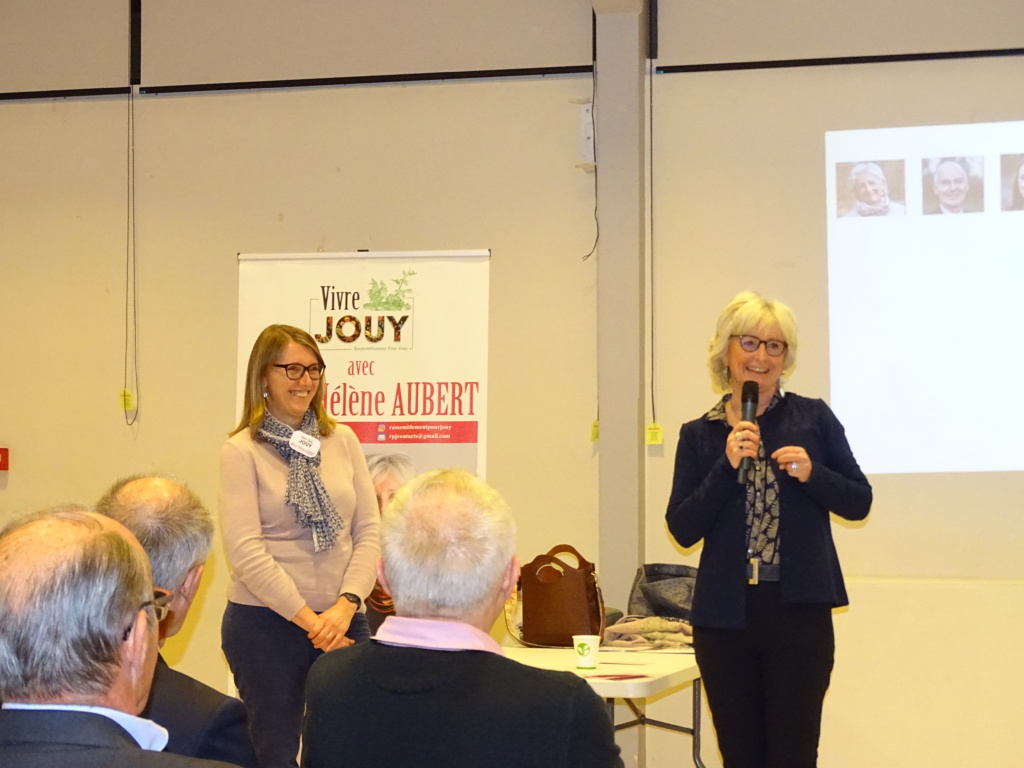
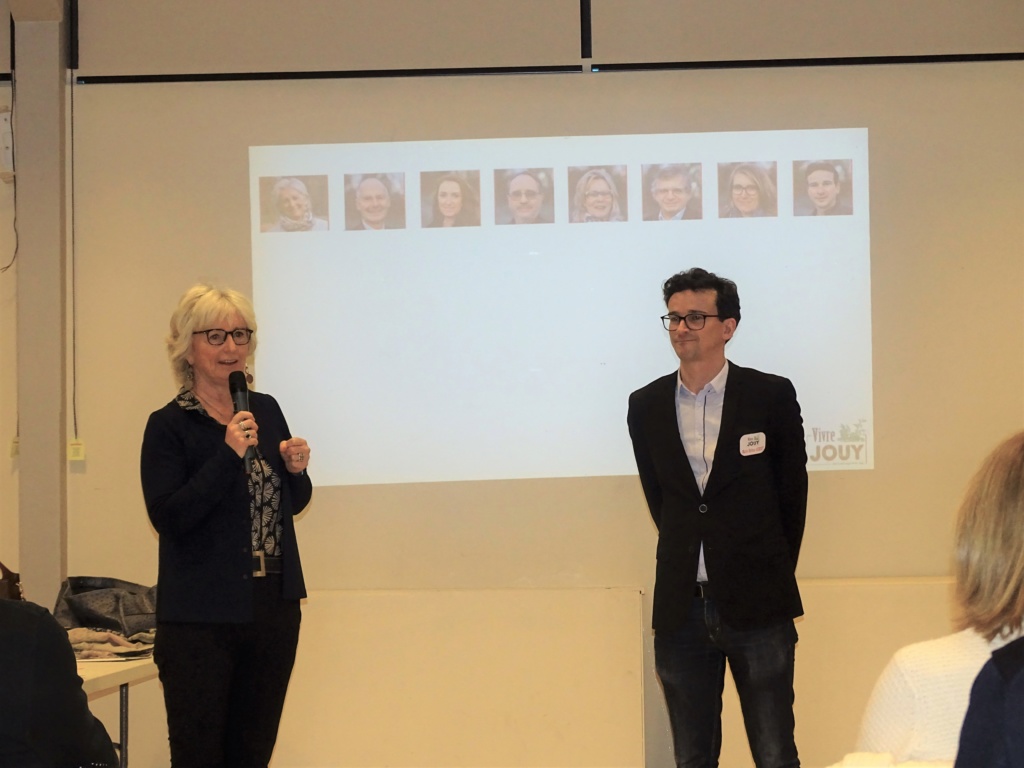
The MHA’s program main themes were then portrayed by the members responsible for each of these files: Social (Living together), Territorial Attractiveness, Local Economic Development, Ecological Transition, Education / Youth, Town Planning / Safety and Security. From the start, MH Aubert, as well as CC had announced it in one of his articles [2]Jouy-en-Josas Elections – Will We Have A Public Debate?, February 25, 2020. Available at: https: / /contrib.city/index.php/2020/02/25/elections-jouy-en-josas-y-aura-t-il-un-debat-public/, the candidate informed us that the social domain was the heart of her activity and her expertise, information about which CC did not identify, either at the meeting or outside, any dispute. Still in the social field, the team announced that they wanted to build a house dedicated to early childhood in the forest district in the heights of the town, and that they were considering a house project for people with illnesses such as Alzeimer. The funding issue for this project was not mentioned. However, during his public meeting on February 28th, her opponent Grégoire Ekmedje had raised the question of a € 140,000 cost, price set out during the presentation of the 2020 budget, during the 3rd February 2020 Municipal Council, and that price was just for the financing of a study carried out by an urban planning firm [3]cf: MAIRIE de JOUY-en-JOSAS, Le mot du Maire, February 2020 – n ° 67, p4. On the other hand, in the Imprimé de Jouy (mayor’s leaflet), also p 4, the price mentioned was only € 40,000. Was it this a typo mistake?
For the attractiveness of Jouy-en-Josas, MHA’s team aims for a partnership with the other municipalities of the Haute Vallée de la Bièvre in order to attract and keep shopkeepers. Rassemblement pour Jouy wishes to modernize the Musée de la Toile de Jouy, in partnership with HEC, probably using current multimedia techniques. According to the deputy mayor, Pierre Narring, a planning engineer, Jouy’s primary schools continue to lose students because the Jovacian population is decreasing and households are struggling to find accommodation. Opponent Grégoire Ekmedje, in his public meeting on February 28th, offers another explanation: students’ parents aim to put their children in a Versailles private or State college and therefore try to “place” their children in the Prefecture’s the primary schools. Indeed, the carte scolaire de Jouy [4]In France, in the State school system, kids are ordered to go to the school corresponding to their home district. This system, called Carte scolaire ((In case the public geo-orientation doesn’t suit some parents, they have only two choices: either to put their children in a private school or to rent a room, thus giving another official home adress, in the district of their choice. automatically leads 10 years old pupils to Vélizy junior schools, which does not necessarily correspond to all parents’ choice. As for the relationship between housing and school, it is certainly real but it is rather situated on an inter-municipal scale. As specified above, children or adolescents will follow their primary, secondary or even higher studies in Versailles, while continuing to live in Jouy-en-Josas. Conclusion: faced with an expensive Real-Estate market, households move to neighboring cities and do not necessarily move to the actual town where the school is located. Finally, with regard to the Jouy-en-Josas’ population, the latter went from 5,477 inhabitants in 1968 to 8,312 in 2015, then to 8,331 in 2019, and according to INSEE projections, to 8,356 in 2020 and 8,533 in 2031. It is increasing , therefore. According to the ville-data.com website, It is a population which is greatly rejuvenated with an aging index of 1 person aged 65 years or more for 66.0 inhabitants under 20 years [5]VILLE-DATA.COM, Population of Jouy-en-Josas, 2019, [accessed March 5th, 2020], available at: https://ville-data.com/nombres-d-habitants/Jouy-en-Josas-78-78322.
With regard to the ecological transition component, the effort will focus on insulating public buildings. For the Youth clubs, MHA aims to keep young people in Jouy (who does not have any high school) by offering them a new house and new activities, including music but in a less conventional way than in the municipal conservatory. The issue of cost has not been addressed. The subject of public transport does not seem to have been raised either. While it is true that buildings represent a third of greenhouse gases (GHG) emissions, transport also contributes to another third. Despite this reality, MHA did not speak about the local regional train line (RER C), which presents many daily dysfunctions, technical as well as social. Contrib’city’s point of view is that the mayors, even if their representation is communal and not regional, can still make heard their voters’ exasperation to regional elected officials. The delay in the current line C modernization work, in order to transform it in a tram-train network, could have been raised. According to the outgoing mayor, Jacques Bellier [6]MAIRIE de JOUY-en-JOSAS, Le mot du Maire (Mayor’s Word), February 2020, n ° 67, p2, the bus line n ° 11 which serves Jouy and nearby Versailles down-town is even threatened by Versailles Grand Parc.
Then came the two sensitive subjects treated in a single rubric, town planning / security, and with them the first hiccups. MHA began with a fanfare by claiming that the SIAVB (the Bièvre Valley Syndicate who manages the hydraulic system) works had considerably reduced the risk of flooding. First gross error because, according to Pr emeritus Jean-Noël Salomon, hydrologist and medalist of the French Société de géographie, these equipments work in case of average flood. But in the case of an exceptional flooding (one over 50 or 100 years probability for example), this same equipment, in some cases, can on the contrary slow down the recession and keep the banks flooded during a longer time. Salomon denounces the false sense of security, often conveyed by elected officials, as to the effectiveness of this public hydraulic equipment: […] all the protective arrangements and “prevention” measures give the illusion of a greater security which in turn gives … new building authorisations. But that an exceptional flood occurs above the level of provided protection (which is not uncommon because the latter depends on budgetary…or other considerations) and the damage will be all the more significant[7]SALOMON Jean-Noël, L’Homme face aux crues et aux inondations (Man facing floods), Presses Universitaires de Bordeaux, Talence, May 1997, p 89 (Coll. Scieteren). The professor concludes with these two measures at once simple, common sense and cheap: The simplest, and by far the most effective [passive prevention], widely adopted by our ancestors, was therefore that which consisted in not settling in areas deemed to be floodable. In the case where areas already built are therefore subject to a risk of flooding, the researcher informs us that in all cases, it is better to seek to spread the flood than to contain it. [8]idem, p 116.
To take an image, it’s a bit like the seat belt story: just because I am fastening it does not mean that I am no longer obliged to comply with the highway code. Likewise, just because we are taking measures to regulate average floods does not mean that we must not take into account the geophysical laws of water and watersheds. To use a somewhat poetic language, if you no longer respect “Mother Nature”, the latter, sooner or later, will remind you of her good memories and send you the bill.
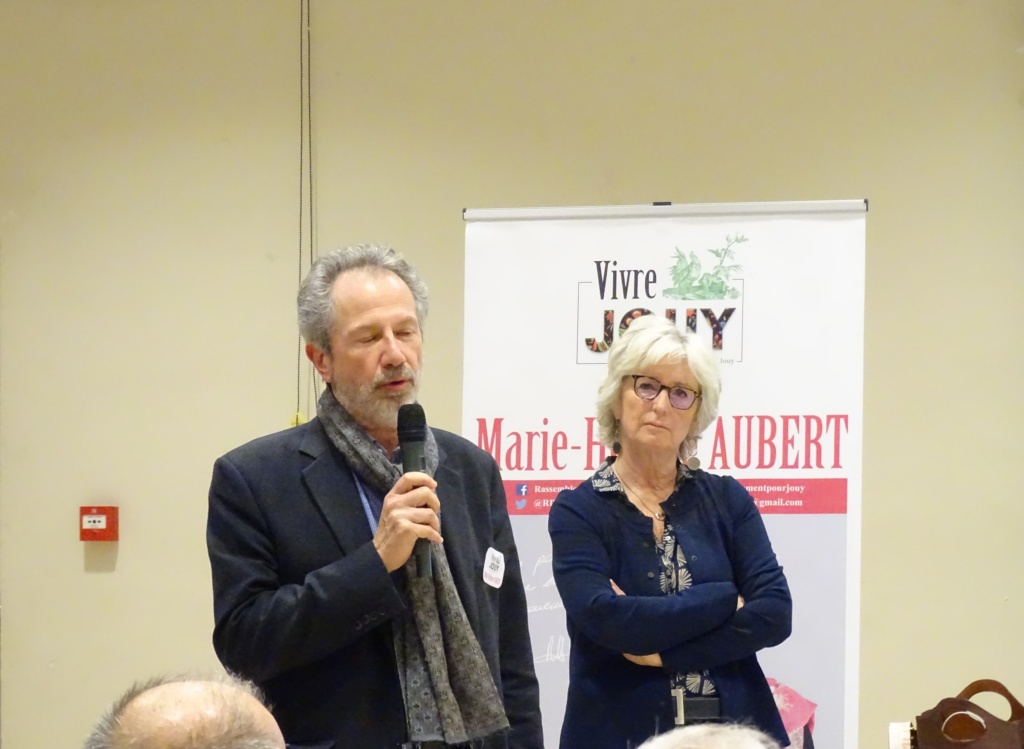
In his explanations, the deputy mayor Pierre Narring mentioned the problem of responsibility: if the promoter respects the local urban planning plan, the mayor cannot refuse the authorisation[9]As a reminder, any building authorization is issued by the mayor and must then be validated by the Prefect. According to CC, it is not a question of refusing a construction but of informing all the stakeholders, starting with the future buyers and tenants, of a very simple but crucial reality: the area is floodable. If nevertheless one decides to build in the major bed of a river – a good part of the center of Jouy-en-Josas is located in the major bed of the Bièvre River – then the building will be destined for being of lacustrine type: adapted stilts must be in place and all equipment related to daily life, including the residents’ vehicle(s), must be either submersible or floating (boat) or considered as disposable.
The other blunder of MH Aubert’s team was the lack of discernment about security: according to Gilles Curti, first deputy mayor and responsible in particular for security, the latter is essentially provided by the solidarity between the inhabitants, which is true! Except that this is not enough, according to Serge Karius, Security specialist and campaign director of the opponent Grégoire Ekmedje [10]cf: public meeting of February 28th, 2020: indeed, in case criminals to be facing some dwellers, what will happen? And there fully appears the public force role, under the control of an elected official. But in the case of Jouy-en-Josas, the National Police of the Versailles Grand Parc sector must manage twelve municipalities (including Jouy) at the same time with only two patrol cars (Anti-Crime Brigade and Rescue Police). In addition, the first deputy mayor informed us that Jouy-en-Josas had two municipal police officers, which is false. The municipality has only one municipal policeman and one security agent among its staff. However for any questioning within a patrol, it is mandatory that there are two officers of the same status. Otherwise, the policeman and the security agent will be able to ensure children’s safety near the schools and issue tickets. But they will not be able to ask questions to suspects in the context of a burglary.
When the time for questions and answers arrived, contrib.city had taken numerous notes and prepared questions about town planning and the municipality’s vulnerabilities. After five minutes, the atmosphere had already risen a few notches, then the gestural insults and verbal innuendo about CC’s IQ and reasoning ability started to come out: the debate had finally started! After a quarter of an hour of scuffles, Marie-Hélène Aubert, moderately comfortable on the urban planning issues, invited everybody to come around the buffet, decision which got unanimity. CC took the opportunity to discuss with the people who had questioned him a little sharply (both are part of the Rassemblement pour Jouy list), points of agreement were found and even a request for forgiveness (immediately granted by contrib. city)! Because ultimately, in addition to the buffet, being able to think, share, confront, exchange and find elements of agreement, is it not the game of local democracy? Indeed, beyond the discussions, we have an immense chance of being part of a democratic territory. Still CC remains a little disappointed, especially given Marie-Hélène Aubert’s undeniable talents in communication and her competence in social matters, that the candidate refused a public debate with Grégoire Ekmedje, head of the other list, Un avenir pour pour Jouy (A future for Jouy).
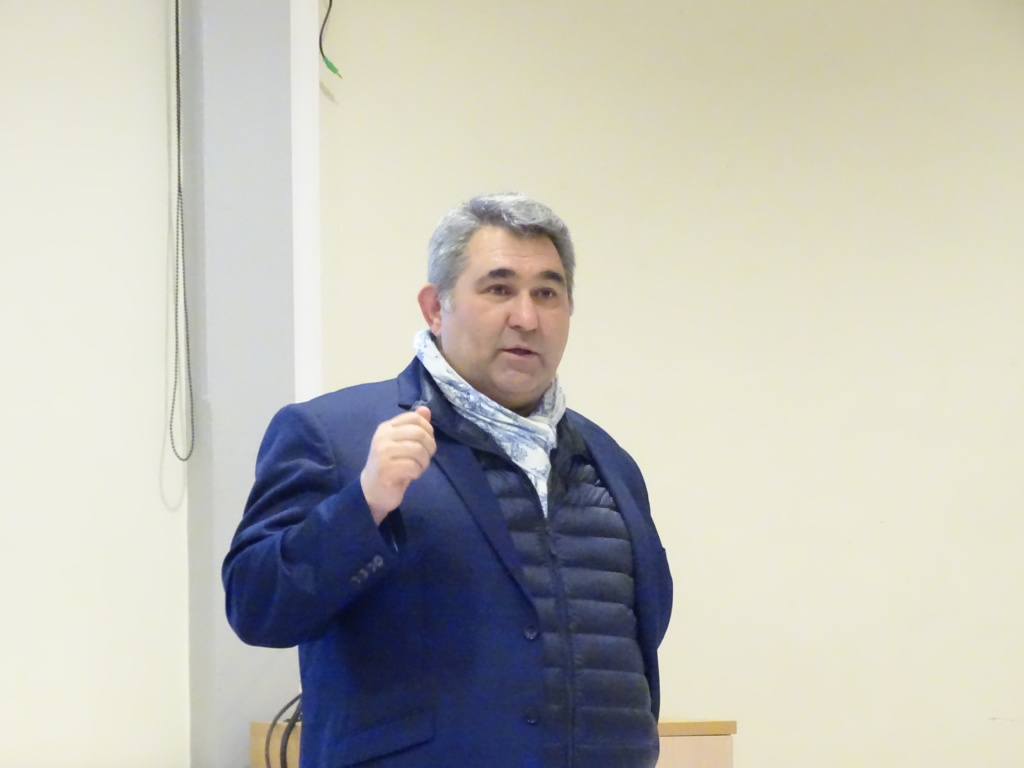
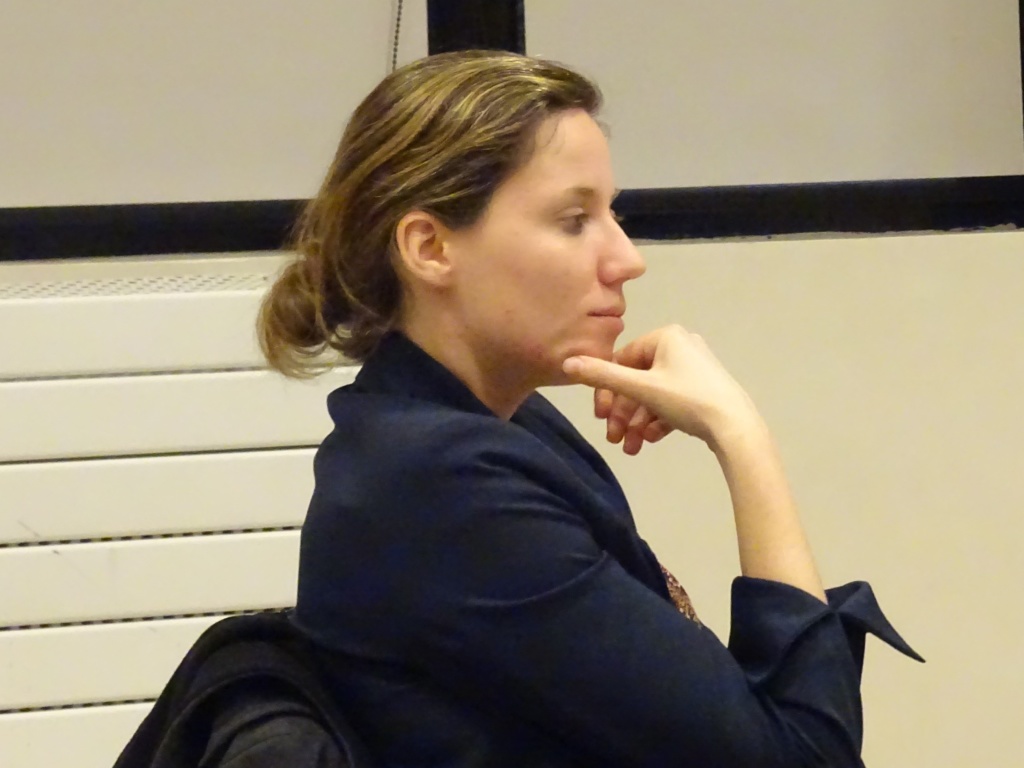
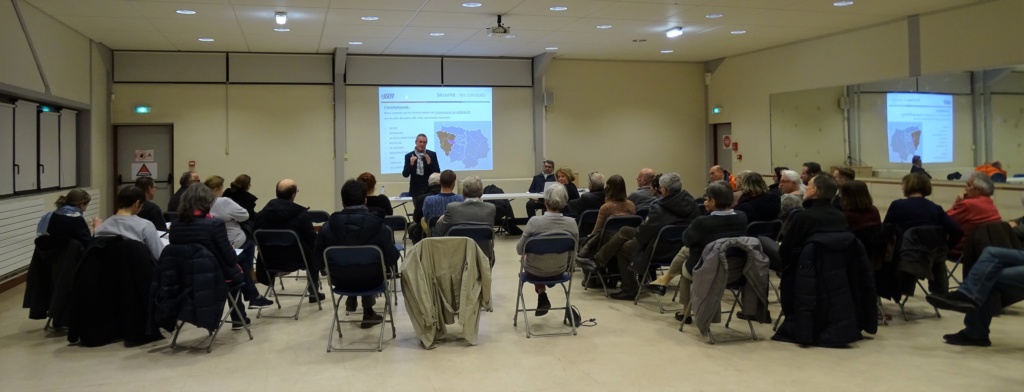
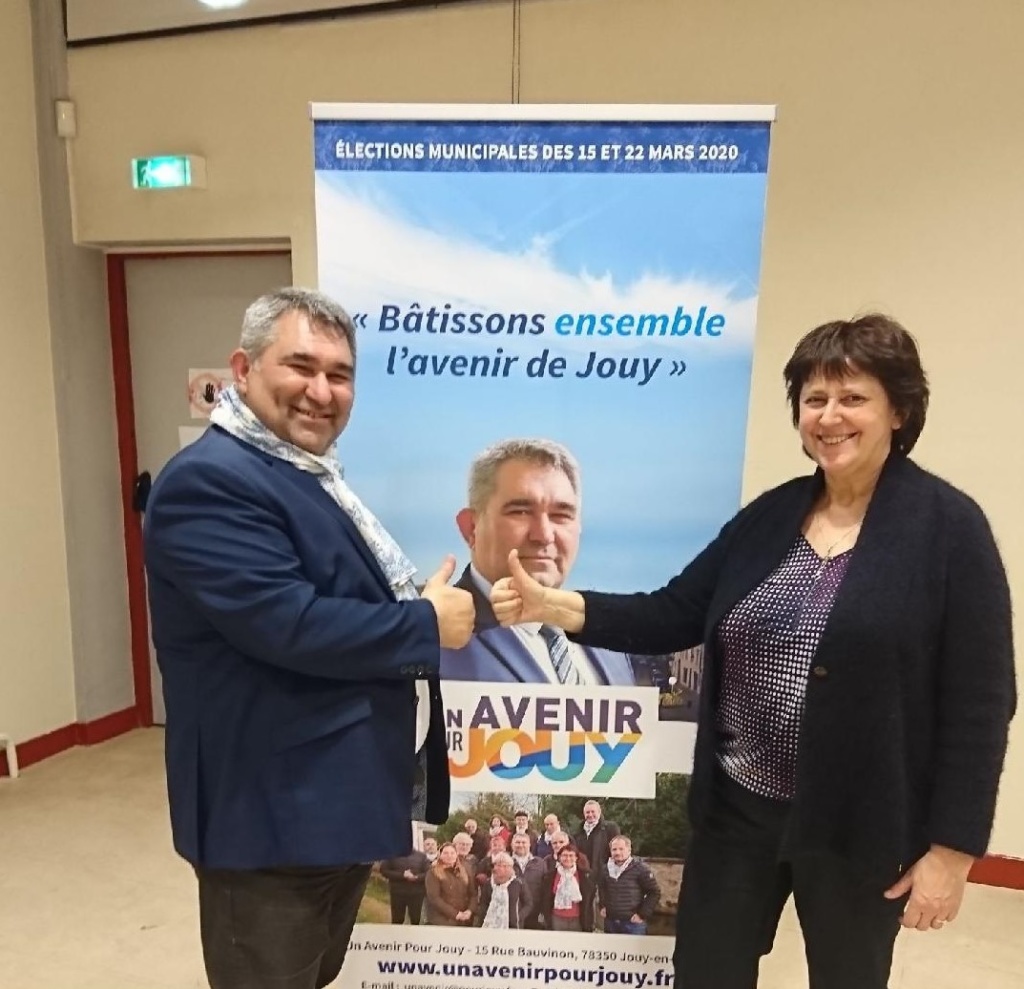
Références

